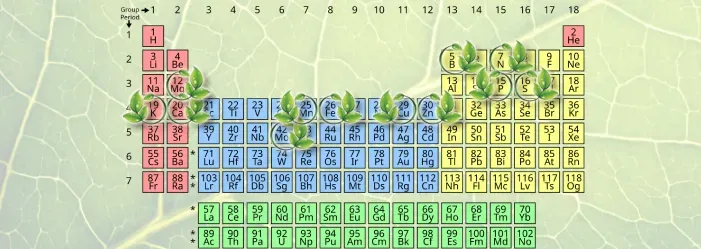The Elements for Strong Plant Growth
Getting the Correct Ratio....

Hydroponic systems rely on a balanced nutrient solution to ensure healthy plant growth, as the plants don’t have access to soil. These nutrients are typically dissolved in water and delivered to the plants' roots. The essential nutrients for hydroponic plant growth can be divided into macronutrients and micronutrients:
Macronutrients (required in larger quantities):
- Nitrogen (N) – Crucial for leaf and stem growth, it promotes photosynthesis.
- Phosphorus (P) – Vital for root development, flower and fruit formation, and energy transfer.
- Potassium (K) – Supports overall plant health, promotes strong cell walls, water regulation, and stress resistance.
- Calcium (Ca) – Important for cell wall structure and cell division. It helps with nutrient uptake and transport.
- Magnesium (Mg) – A central component of chlorophyll; important for photosynthesis and enzyme activation.
- Sulphur (S) – Essential for protein synthesis and the production of vitamins.
Micronutrients (required in smaller quantities):
- Iron (Fe) – Key for chlorophyll production and overall plant metabolism.
- Manganese (Mn) – Aids in photosynthesis, nitrogen assimilation, and the synthesis of some enzymes.
- Zinc (Zn) – Important for enzyme function, hormone regulation, and protein synthesis.
- Copper (Cu) – Necessary for photosynthesis, respiration, and lignin synthesis.
- Boron (B) – Involved in cell wall formation, seed and fruit development, and nutrient movement.
- Molybdenum (Mo) – Required for nitrogen fixation and protein synthesis.
- Chlorine (Cl) – Helps with osmosis and cell division.
pH Level:
The pH of the hydroponic solution is also important, as it affects nutrient availability. The optimal pH range for most hydroponic plants is between 5.5 and 6.5.
Nutrient Delivery:
Nutrients are typically mixed in water and delivered via systems like nutrient film technique (NFT), deep water culture (DWC), or aeroponics. Adjusting the nutrient concentration, known as the EC (Electrical Conductivity), is also critical for preventing over or under-fertilizing.
By monitoring and adjusting the nutrient levels, pH, and EC, plants can grow successfully in a hydroponic system.

